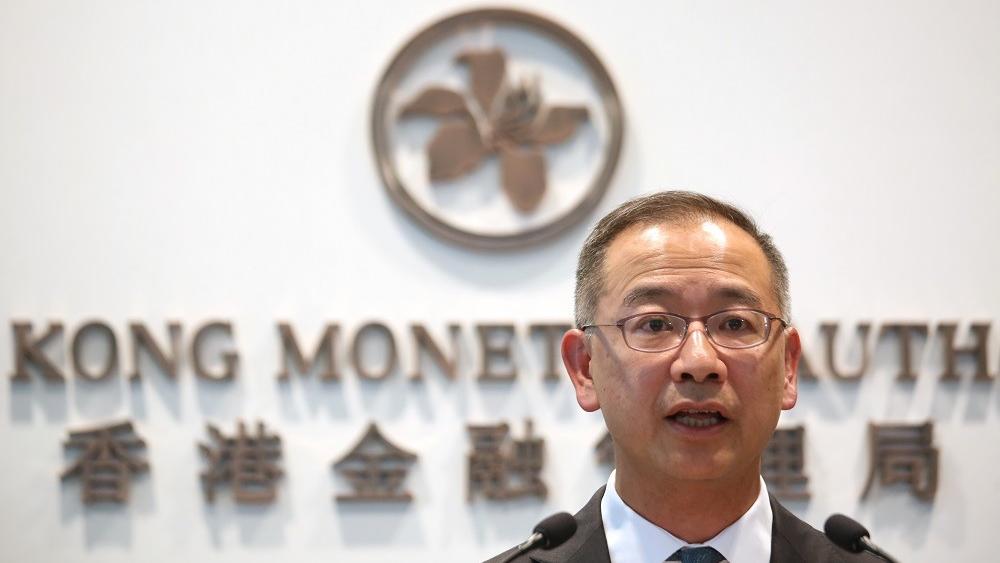 Chief Executive of the Hong Kong Monetary Authority Eddie Yue Wai-man speaks at a press conference in Hong Kong on March 16, 2020. (PARKER ZHENG / CHINA DAILY)
Chief Executive of the Hong Kong Monetary Authority Eddie Yue Wai-man speaks at a press conference in Hong Kong on March 16, 2020. (PARKER ZHENG / CHINA DAILY)
HONG KONG - The US interest-rate rise cycle will not affect Hong Kong’s financial stability as the city’s monetary and financial markets have operated in an orderly manner, and the linked exchange-rate system remains robust, Hong Kong Monetary Authority Chief Executive Eddie Yue Wai-man said on Thursday.
READ MORE: HKMA raises interest rate by 75 basis points after Fed hike
Yue made the remarks during a media briefing hours after the city’s de facto central bank raised the base rate by 75 basis points to 2.75 percent, following the US Federal Reserve’s interest rate hike of the same amount. This is the Fed’s second such increase in just over a month in an effort to curb its domestic inflation, which has been running at a four-decade high.
Yue said there is considerable uncertainty about the pace of the Fed’s hawkish path as it is a daunting task for the US to strike a balance between economic growth and containing inflation.
HKMA Chief Executive Eddie Yue said that the aggregated balance of HKMA’s financial assets may decrease at a faster pace in the current interest-rate rise cycle, but the rate hikes will not affect the banking system or bad debts, given measures introduced to make sure borrowers have the ability to repay their mortgage loans in the midst of a rising-rate environment
“As the US continues to raise interest rates to tame the high inflation, Hong Kong will need to follow under the linked exchange-rate system,” said Yue.
The pace of rising rates has sparked worries about capital outflow and the effectiveness of the Hong Kong dollar’s 39-year-old peg to its US counterpart. Under the linked exchange-rate system, the HKMA has a mandate to keep the currency trading at HK$7.75 to HK$7.85 per US dollar by buying and selling local dollars.
Since May, the HKMA has intervened in the currency markets several times to defend the peg system, which resulted in a decrease in the aggregated balance of Hong Kong’s banking system.
Yue said that the aggregated balance of HKMA’s financial assets may decrease at a faster pace in the current interest-rate rise cycle, but the rate hikes will not affect the banking system or bad debts, given measures introduced to make sure borrowers have the ability to repay their mortgage loans in the midst of a rising-rate environment.
But Yue said there is no need to worry about the HKMA’s frequent intervention as the yield gap between the Hong Kong dollar and its US counterpart will gradually narrow when the balance of the banking system falls to a certain level. “With less carry trade in the market, the exchange rate will return to equilibrium,” he added.
Hong Kong’s foreign-exchange reserves are well prepared to support the system even amid capital outflows, Financial Secretary Paul Chan Mo-po said at a news conference on Thursday, adding that the city has solid economic fundamentals and ample reserves to cope with external shocks.
ALSO READ: HKMA chief says Exchange Fund to ride out financial storm
This is clearly shown by more than $440 billion in foreign exchange reserves, or around 1.7 times the monetary base of the Hong Kong dollar.
Chan nevertheless noted that a deteriorating global economy in the second half of the year would inevitably prompt the SAR government to cut the full-year economic forecast. As it stands, the government forecasts economic growth of 1 to 2 percent for this year.


